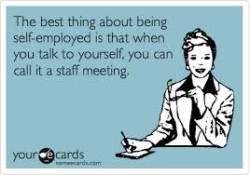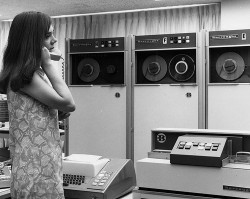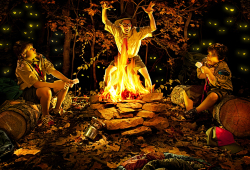Room to Breathe Walking Group, Saturday 5 March
Space to think, talk and breathe
The next Room to Breathe day is on Saturday 7 March, starting from Addingham, near Ilkley. This is a day to walk and talk in the open air of the Dales, in the company of interesting people and skilled facilitators.
Full details here or contact Chris Powell for more information.
Going independent: the psychology and emotion of going self-employed. Café Psychologique 23 February
Going Independent – Nightmare or Dream?
The number of people in self-employment in the UK is higher than at any point in the last 40 years: there are 4.6 million self-employed workers, or 15% of everyone in work. There are another 356,000 people with self-employment as a second job Some of this is out of necessity but many people choose to go in this direction. Running your own business or being your own boss is a common dream but many people also toy with the idea without making the change. Perhaps they are wise given that average income from self-employment has fallen by 22% since 2008.
So the risks to income and loss of security might prevent someone going independent, but perhaps the fears of failing – perceived humiliation, impotence, rejection – might also play a less conscious part.

That said, perhaps the attractions of self-employment are more to do with life-style and working patterns rather than levels of income. Some people want to flee the frustrations and stresses of large organisations. Others want to be free to focus on work that they love and gives them creative expression. In any case it’s clear it’s a change that is hard for many to make and suits some much better than others.
This Café Psychologique will explore the psychology and emotion of becoming self-employed. Dr Kamila Hortynska is a clinical psychologist, mindfulness teacher and CBT therapist. She has been self-employed for the last couple of years. She will introduce our conversation at Café Psychologique Leeds, on Tuesday 23 February from 8.00 pm to 9.45 pm in Seven Arts, Chapel Allerton, Leeds. The Café costs £4 on the door.
There is a poster to download here: Café Psychologique February 2016
You can join in the conversation online on our Facebook page: Café Psychologique
Being the change – why we can’t give up giving up, Café Psychologique 19 January
New Year Resolutions
How is it so many people make the same resolutions year after year: eat less, drink less, spend less, exercise more, give up smoking, get organised, give up making resolutions? And so many people don’t last until the end of January, never mind to the end of the year?
Why is it so hard to make changes which would be beneficial, and which we might even desire with a passion? Or, why can we not simply accept that some things about ourselves just are not going to change? How is it that some people do seem able to make changes, and what’s their secret?
We shall try to ease your guilty consciences, help you be kind to yourself, and work out why and how you might really manage to change at our next Café Psychologique. Maria Spellacy is a Café Psychologique regular and works for the NHS helping people stop smoking. She will introduce our conversation at Café Psychologique Leeds, on Tuesday 19 January from 8.00 pm to 9.45 pm in Seven Arts, Chapel Allerton, Leeds. The Café costs £4 on the door.
There is a poster to download here: Café Psychologique January 2016
You can join in the conversation online on our Facebook page: Café Psychologique
Ready for Death? Café Psychologique 24 November
Is it best to prepare for death or block it out?
Death remains the only real certainty in life (since taxes seem to be more negotiable nowadays, particularly if you are a multi-national). No one yet seems to offer immortality as a realistic option, so we’ll all have to deal with it. The question is whether to go with a hedonist view that we might as well eat, drink and be merry while we have the chance, or the view of the existentialists, such as Camus, that we cannot deal with anything else in life unless with deal with the fact of our mortality.
More than that, does it make sense to put our affairs in order and leave clear instructions for what happens after we die, or should we leave it up to those who are left, to do what they think best since it is them it affects not us?
Psychoanalysts tend to argue people have a tendency to avoid things that seem too difficult to deal with, but there might be real gains to be made in our ability to engage with our lives today by coming to terms with the prospect of death.
We shall attempt to address the taboos, practicalities and psychological contradictions around death at our next Café Psychologique. Karen Fisher is an independent funeral director, based in Chapel Allerton, so well used to dealing with death and all that surrounds it. She will introduce our conversation at Café Psychologique Leeds, on Tuesday 24 November from 8.00 pm to 9.45 pm in Seven Arts, Chapel Allerton, Leeds. The Café costs £4 on the door.
There is a poster to download here: Café Psychologique November 2015
You can join in the conversation online on our Facebook page: Café Psychologique
Technology and WE – Café Psychologique, 20 October
A Bring Your Own Device Discussion
How has going digital affected our world and its values? What have WE gained and what might WE be letting slip away, almost unnoticed? Is there such a thing as a digital native, or is it a myth that the younger generations are the natural masters of technology in the modern world? Are WE developing a postdigital society – one with a more human face now that WE are beginning to realise what WE have let loose into the world, or are WE becoming “posthuman” – beings necessarily enhanced by technology just to survive? It may appear that we are adding pressures with technology rather than removing them.
Terry McAndrew has enjoyed a digital journey through many roles in Higher Education as one of its early adopters in the 1970’s to running a Digital Literacy project across the UK, encountering many novel approaches to solving difficult problems but wonders if WE are letting the tail wag the dog too often, or not celebrating and rewarding when WE truly work together most effectively. He would like you to bring along your mobile technology (whatever it might be) and share in a digital experience and discussion.
Terry will introduce our conversation – real and virtual – at Café Psychologique Leeds, on Tuesday 20 October from 8.00 pm to 9.45 pm in Seven Arts, Chapel Allerton, Leeds. The Café costs £4 on the door.
This will be a Café Psychologique with a difference – our usual face to face conversation combined with an attempt to communicate digitally at the same time – bring your own phone, tablet, laptop or semaphore flags
There is a poster to download here: Café Psychologique October November 2015
You can join in the conversation online on our Facebook page: Café Psychologique
Living a Good Life, Café Psychologique, 29 September
How our values shape our lives
Our lives are shaped by many things outside our control, but people generally make some choices about the kind of lives they lead. This café will explore the role of values in shaping these choices. Hedonism, morality, service or duty are all powerful drivers for people. As are other values that are not always so readily apparent, particularly those adopted in less concious ways from family groupings, friendships, workplace, social class, and other sources.
Wendy Callaghan and Carol Martin are clinical psychologists, and will invite discussion of the values we hold and their influence on our paths through life. Our conversation at Café Psychologique Leeds starts on Tuesday 29 September from 8.00 pm to 9.45 pm in Seven Arts, Chapel Allerton, Leeds. The Café costs £4 on the door.
There is a poster to download here: Café Psychologique September October November 2015
You can join in the conversation online on our Facebook page: Café Psychologique
Modern Myths, Café Psychologique, 21 July
The Power of Stories Old and New
What are the myths that we live by? Do yesterday’s stories still have power today and will today’s stories one day become the myths of tomorrow?
Stories and myths are as old as humankind, whether tales are swapped around a fire in a cave, at the bus stop, or on Facebook. Some stories seem to have power to influence lives, or express truths that flow across societies, achieving the status of myths. What is it that gives myths their power, so they are told and re-told, interpreted and re-interpreted, by psychoanalysis, by feminism, by post colonialism, and by satire? Do myths partly rely on their age and universality for their status or are new stories emerging today that are more relevant, that speak more directly to contemporary times, and which will join the canon of classical myths or even unseat them?
Matthew Bellwood is a professional story teller and will introduce our conversation at Café Psychologique Leeds on Tuesday 21 July from 8.00 pm to 9.45 pm in Seven Arts, Chapel Allerton, Leeds. The Café costs £4 on the door.
There is a poster to download here: Café Psychologique July 2015
You can join in the conversation online on our Facebook page: Café Psychologique
Aspiration and Inequality, Understanding the Election Result, Café Psychologique, 30 June
So what happened?
Was this really one of the most unexpected general election results in British history, or did you see it coming? How could pollsters make such poor predictions, and why were so many people shocked to see the Conservatives win an outright majority for the first time in 23 years? Is it just down to ‘shy tories’ – people unwilling to admit to pollsters that they are going to vote conservative? Even if so, that still doesn’t explain why they voted that way.
For those who were shocked, is there a way to understand how so many others could vote in favour of a party and policies that seem so repellent to the liberal left? Is Britain really the place that many of us imagine it is? What if our own success really does rely on other people’s failure? Would you really be willing to suffer hardship yourself if that’s what’s needed to protect a welfare state, public services and open borders? Does having a sense of personal aspiration for yourself and those around you inevitably result in inequality of opportunity for others?
Nick Tanna is a Group Analyst and will introduce our conversation at Café Psychologique Leeds on Tuesday 30 June from 8.00 pm to 9.45 pm in Seven Arts, Chapel Allerton, Leeds. The Café costs £4 on the door.
There is a poster to download here: Café Psychologique June 2015
You can join in the conversation online on our Facebook page: Café Psychologique
Punishment or Treatment? Café Psychologique 26 May
How to deal with crime for the best.
Is it right to punish someone who was unwell at the time of their offence? A recent Louis Theroux documentary ‘By Reason of Insanity’ focussed on when treatment for mental health problems is justified instead of time spent in prison. Research has consistently shown that more than 70% of the prison population can be classified as having two or more mental health disorders. With this in mind, we would like to think about the following:
Does anyone commit a crime when they aren’t in their right mind?
Should everyone who commits a crime be given a form of treatment?
Are there any other options to the dichotomy of treatment and punishment?
Steven Mayers and Tom Matthews are Clinical Psychologists in Training and will introduce our conversation at Café Psychologique Leeds on Tuesday 26 May from 8.00 pm to 9.45 pm in Seven Arts, Chapel Allerton, Leeds. The Café costs £4 on the door.
There is a poster to download here: Café Psychologique May 2015
You can join in the conversation online on our Facebook page: Café Psychologique
Bad Religion. Café Psychologique Tuesday 28 April
Bad Religion: when is faith healthy or unhealthy?
Nice Christians, nasty Christians. Nice Muslims, nasty Muslims. Nice atheists, nasty atheists.
Perhaps it’s not the belief system that’s the problem, but the way of believing? When is a belief system unhealthy, delusional or producing so much conflict it undermines its own tenets?
This event is a joint meeting of Cafe Psychologique and Cafe Theologique and will reflect the styles and values of each.
Our specialist contributor is Dr Sara Savage. Sara is a social psychologist based in the Department of Psychology, University of Cambridge, where she has a focus on developing empirically based interventions that prevent extremism and inter-group conflict. She will introduce the conversation at Café Psychologique Leeds on Tuesday 28 April from 8.00 pm to 9.45 pm in Seven Arts, Chapel Allerton, Leeds. The Café costs £4 on the door.
Since this is a joint event between Café Psychologique and Café Theologique demand for seats is likely to be high. You can guarantee a seat by booking in advance here: Tickets
There is a poster to download here:
Café Psychologique April 2015
You can join in the conversation online on our Facebook page: Café Psychologique
Category









